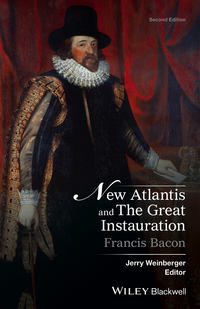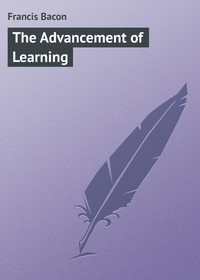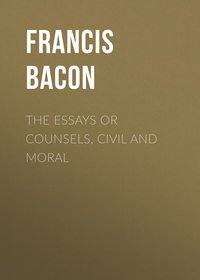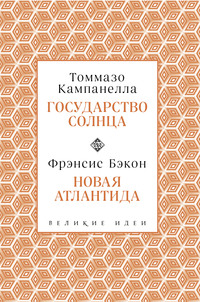 полная версия
полная версияNovum Organum
XLVI. The human understanding, when any proposition has been once laid down (either from general admission and belief, or from the pleasure it affords), forces everything else to add fresh support and confirmation; and although most cogent and abundant instances may exist to the contrary, yet either does not observe or despises them, or gets rid of and rejects them by some distinction, with violent and injurious prejudice, rather than sacrifice the authority of its first conclusions. It was well answered by him15 who was shown in a temple the votive tablets suspended by such as had escaped the peril of shipwreck, and was pressed as to whether he would then recognize the power of the gods, by an inquiry, But where are the portraits of those who have perished in spite of their vows? All superstition is much the same, whether it be that of astrology, dreams, omens, retributive judgment, or the like, in all of which the deluded believers observe events which are fulfilled, but neglect and pass over their failure, though it be much more common. But this evil insinuates itself still more craftily in philosophy and the sciences, in which a settled maxim vitiates and governs every other circumstance, though the latter be much more worthy of confidence. Besides, even in the absence of that eagerness and want of thought (which we have mentioned), it is the peculiar and perpetual error of the human understanding to be more moved and excited by affirmatives than negatives, whereas it ought duly and regularly to be impartial; nay, in establishing any true axiom the negative instance is the most powerful.
XLVII. The human understanding is most excited by that which strikes and enters the mind at once and suddenly, and by which the imagination is immediately filled and inflated. It then begins almost imperceptibly to conceive and suppose that everything is similar to the few objects which have taken possession of the mind, while it is very slow and unfit for the transition to the remote and heterogeneous instances by which axioms are tried as by fire, unless the office be imposed upon it by severe regulations and a powerful authority.
XLVIII. The human understanding is active and cannot halt or rest, but even, though without effect, still presses forward. Thus we cannot conceive of any end or external boundary of the world, and it seems necessarily to occur to us that there must be something beyond. Nor can we imagine how eternity has flowed on down to the present day, since the usually received distinction of an infinity, a parte ante and a parte post,16 cannot hold good; for it would thence follow that one infinity is greater than another, and also that infinity is wasting away and tending to an end. There is the same difficulty in considering the infinite divisibility of lines, arising from the weakness of our minds, which weakness interferes to still greater disadvantage with the discovery of causes; for although the greatest generalities in nature must be positive, just as they are found, and in fact not causable, yet the human understanding, incapable of resting, seeks for something more intelligible. Thus, however, while aiming at further progress, it falls back to what is actually less advanced, namely, final causes; for they are clearly more allied to man’s own nature, than the system of the universe, and from this source they have wonderfully corrupted philosophy. But he would be an unskilful and shallow philosopher who should seek for causes in the greatest generalities, and not be anxious to discover them in subordinate objects.
XLIX. The human understanding resembles not a dry light, but admits a tincture of the will17 and passions, which generate their own system accordingly; for man always believes more readily that which he prefers. He, therefore, rejects difficulties for want of patience in investigation; sobriety, because it limits his hope; the depths of nature, from superstition; the light of experiment, from arrogance and pride, lest his mind should appear to be occupied with common and varying objects; paradoxes, from a fear of the opinion of the vulgar; in short, his feelings imbue and corrupt his understanding in innumerable and sometimes imperceptible ways.
L. But by far the greatest impediment and aberration of the human understanding proceeds from the dulness, incompetence, and errors of the senses; since whatever strikes the senses preponderates over everything, however superior, which does not immediately strike them. Hence contemplation mostly ceases with sight, and a very scanty, or perhaps no regard is paid to invisible objects. The entire operation, therefore, of spirits inclosed in tangible bodies18 is concealed, and escapes us. All that more delicate change of formation in the parts of coarser substances (vulgarly called alteration, but in fact a change of position in the smallest particles) is equally unknown; and yet, unless the two matters we have mentioned be explored and brought to light, no great effect can be produced in nature. Again, the very nature of common air, and all bodies of less density (of which there are many) is almost unknown; for the senses are weak and erring, nor can instruments be of great use in extending their sphere or acuteness – all the better interpretations of nature are worked out by instances, and fit and apt experiments, where the senses only judge of the experiment, the experiment of nature and the thing itself.
LI. The human understanding is, by its own nature, prone to abstraction, and supposes that which is fluctuating to be fixed. But it is better to dissect than abstract nature: such was the method employed by the school of Democritus,19 which made greater progress in penetrating nature than the rest. It is best to consider matter, its conformation, and the changes of that conformation, its own action,20 and the law of this action or motion; for forms are a mere fiction of the human mind, unless you will call the laws of action by that name.21
LII. Such are the idols of the tribe, which arise either from the uniformity of the constitution of man’s spirit, or its prejudices, or its limited faculties or restless agitation, or from the interference of the passions, or the incompetence of the senses, or the mode of their impressions.
LIII. The idols of the den derive their origin from the peculiar nature of each individual’s mind and body, and also from education, habit, and accident; and although they be various and manifold, yet we will treat of some that require the greatest caution, and exert the greatest power in polluting the understanding.
LIV. Some men become attached to particular sciences and contemplations, either from supposing themselves the authors and inventors of them, or from having bestowed the greatest pains upon such subjects, and thus become most habituated to them.22 If men of this description apply themselves to philosophy and contemplations of a universal nature, they wrest and corrupt them by their preconceived fancies, of which Aristotle affords us a single instance, who made his natural philosophy completely subservient to his logic, and thus rendered it little more than useless and disputatious. The chemists, again, have formed a fanciful philosophy with the most confined views, from a few experiments of the furnace. Gilbert,23 too, having employed himself most assiduously in the consideration of the magnet, immediately established a system of philosophy to coincide with his favorite pursuit.
LV. The greatest and, perhaps, radical distinction between different men’s dispositions for philosophy and the sciences is this, that some are more vigorous and active in observing the differences of things, others in observing their resemblances; for a steady and acute disposition can fix its thoughts, and dwell upon and adhere to a point, through all the refinements of differences, but those that are sublime and discursive recognize and compare even the most delicate and general resemblances; each of them readily falls into excess, by catching either at nice distinctions or shadows of resemblance.
LVI. Some dispositions evince an unbounded admiration of antiquity, others eagerly embrace novelty, and but few can preserve the just medium, so as neither to tear up what the ancients have correctly laid down, nor to despise the just innovations of the moderns. But this is very prejudicial to the sciences and philosophy, and instead of a correct judgment we have but the factions of the ancients and moderns. Truth is not to be sought in the good fortune of any particular conjuncture of time, which is uncertain, but in the light of nature and experience, which is eternal. Such factions, therefore, are to be abjured, and the understanding must not allow them to hurry it on to assent.
LVII. The contemplation of nature and of bodies in their individual form distracts and weakens the understanding; but the contemplation of nature and of bodies in their general composition and formation stupefies and relaxes it. We have a good instance of this in the school of Leucippus and Democritus compared with others, for they applied themselves so much to particulars as almost to neglect the general structure of things, while the others were so astounded while gazing on the structure that they did not penetrate the simplicity of nature. These two species of contemplation must, therefore, be interchanged, and each employed in its turn, in order to render the understanding at once penetrating and capacious, and to avoid the inconveniences we have mentioned, and the idols that result from them.
LVIII. Let such, therefore, be our precautions in contemplation, that we may ward off and expel the idols of the den, which mostly owe their birth either to some predominant pursuit, or, secondly, to an excess in synthesis and analysis, or, thirdly, to a party zeal in favor of certain ages, or, fourthly, to the extent or narrowness of the subject. In general, he who contemplates nature should suspect whatever particularly takes and fixes his understanding, and should use so much the more caution to preserve it equable and unprejudiced.
LIX. The idols of the market are the most troublesome of all, those namely which have entwined themselves round the understanding from the associations of words and names. For men imagine that their reason governs words, while, in fact, words react upon the understanding; and this has rendered philosophy and the sciences sophistical and inactive. Words are generally formed in a popular sense, and define things by those broad lines which are most obvious to the vulgar mind; but when a more acute understanding or more diligent observation is anxious to vary those lines, and to adapt them more accurately to nature, words oppose it. Hence the great and solemn disputes of learned men often terminate in controversies about words and names, in regard to which it would be better (imitating the caution of mathematicians) to proceed more advisedly in the first instance, and to bring such disputes to a regular issue by definitions. Such definitions, however, cannot remedy the evil in natural and material objects, because they consist themselves of words, and these words produce others;24 so that we must necessarily have recourse to particular instances, and their regular series and arrangement, as we shall mention when we come to the mode and scheme of determining notions and axioms.
LX. The idols imposed upon the understanding by words are of two kinds. They are either the names of things which have no existence (for as some objects are from inattention left without a name, so names are formed by fanciful imaginations which are without an object), or they are the names of actual objects, but confused, badly defined, and hastily and irregularly abstracted from things. Fortune, the primum mobile, the planetary orbits,25 the element of fire, and the like fictions, which owe their birth to futile and false theories, are instances of the first kind. And this species of idols is removed with greater facility, because it can be exterminated by the constant refutation or the desuetude of the theories themselves. The others, which are created by vicious and unskilful abstraction, are intricate and deeply rooted. Take some word, for instance, as moist, and let us examine how far the different significations of this word are consistent. It will be found that the word moist is nothing but a confused sign of different actions admitted of no settled and defined uniformity. For it means that which easily diffuses itself over another body; that which is indeterminable and cannot be brought to a consistency; that which yields easily in every direction; that which is easily divided and dispersed; that which is easily united and collected; that which easily flows and is put in motion; that which easily adheres to, and wets another body; that which is easily reduced to a liquid state though previously solid. When, therefore, you come to predicate or impose this name, in one sense flame is moist, in another air is not moist, in another fine powder is moist, in another glass is moist; so that it is quite clear that this notion is hastily abstracted from water only, and common ordinary liquors, without any due verification of it.
There are, however, different degrees of distortion and mistake in words. One of the least faulty classes is that of the names of substances, particularly of the less abstract and more defined species (those then of chalk and mud are good, of earth bad); words signifying actions are more faulty, as to generate, to corrupt, to change; but the most faulty are those denoting qualities (except the immediate objects of sense), as heavy, light, rare, dense. Yet in all of these there must be some notions a little better than others, in proportion as a greater or less number of things come before the senses.
LXI. The idols of the theatre are not innate, nor do they introduce themselves secretly into the understanding, but they are manifestly instilled and cherished by the fictions of theories and depraved rules of demonstration. To attempt, however, or undertake their confutation would not be consistent with our declarations. For since we neither agree in our principles nor our demonstrations, all argument is out of the question. And it is fortunate that the ancients are left in possession of their honors. We detract nothing from them, seeing our whole doctrine relates only to the path to be pursued. The lame (as they say) in the path outstrip the swift who wander from it, and it is clear that the very skill and swiftness of him who runs not in the right direction must increase his aberration.
Our method of discovering the sciences is such as to leave little to the acuteness and strength of wit, and indeed rather to level wit and intellect. For as in the drawing of a straight line, or accurate circle by the hand, much depends on its steadiness and practice, but if a ruler or compass be employed there is little occasion for either; so it is with our method. Although, however, we enter into no individual confutations, yet a little must be said, first, of the sects and general divisions of these species of theories; secondly, something further to show that there are external signs of their weakness; and, lastly, we must consider the causes of so great a misfortune, and so long and general a unanimity in error, that we may thus render the access to truth less difficult, and that the human understanding may the more readily be purified, and brought to dismiss its idols.
LXII. The idols of the theatre, or of theories, are numerous, and may, and perhaps will, be still more so. For unless men’s minds had been now occupied for many ages in religious and theological considerations, and civil governments (especially monarchies), had been averse to novelties of that nature even in theory (so that men must apply to them with some risk and injury to their own fortunes, and not only without reward, but subject to contumely and envy), there is no doubt that many other sects of philosophers and theorists would have been introduced, like those which formerly flourished in such diversified abundance among the Greeks. For as many imaginary theories of the heavens can be deduced from the phenomena of the sky, so it is even more easy to found many dogmas upon the phenomena of philosophy – and the plot of this our theatre resembles those of the poetical, where the plots which are invented for the stage are more consistent, elegant, and pleasurable than those taken from real history.
In general, men take for the groundwork of their philosophy either too much from a few topics, or too little from many; in either case their philosophy is founded on too narrow a basis of experiment and natural history, and decides on too scanty grounds. For the theoretic philosopher seizes various common circumstances by experiment, without reducing them to certainty or examining and frequently considering them, and relies for the rest upon meditation and the activity of his wit.
There are other philosophers who have diligently and accurately attended to a few experiments, and have thence presumed to deduce and invent systems of philosophy, forming everything to conformity with them.
A third set, from their faith and religious veneration, introduce theology and traditions; the absurdity of some among them having proceeded so far as to seek and derive the sciences from spirits and genii. There are, therefore, three sources of error and three species of false philosophy; the sophistic, empiric, and superstitious.
LXIII. Aristotle affords the most eminent instance of the first; for he corrupted natural philosophy by logic – thus he formed the world of categories, assigned to the human soul, the noblest of substances, a genus determined by words of secondary operation, treated of density and rarity (by which bodies occupy a greater or lesser space), by the frigid distinctions of action and power, asserted that there was a peculiar and proper motion in all bodies, and that if they shared in any other motion, it was owing to an external moving cause, and imposed innumerable arbitrary distinctions upon the nature of things; being everywhere more anxious as to definitions in teaching and the accuracy of the wording of his propositions, than the internal truth of things. And this is best shown by a comparison of his philosophy with the others of greatest repute among the Greeks. For the similar parts of Anaxagoras, the atoms of Leucippus and Democritus, the heaven and earth of Parmenides, the discord and concord of Empedocles,26 the resolution of bodies into the common nature of fire, and their condensation according to Heraclitus, exhibit some sprinkling of natural philosophy, the nature of things, and experiment; while Aristotle’s physics are mere logical terms, and he remodelled the same subject in his metaphysics under a more imposing title, and more as a realist than a nominalist. Nor is much stress to be laid on his frequent recourse to experiment in his books on animals, his problems, and other treatises; for he had already decided, without having properly consulted experience as the basis of his decisions and axioms, and after having so decided, he drags experiment along as a captive constrained to accommodate herself to his decisions: so that he is even more to be blamed than his modern followers (of the scholastic school) who have deserted her altogether.
LXIV. The empiric school produces dogmas of a more deformed and monstrous nature than the sophistic or theoretic school; not being founded in the light of common notions (which, however poor and superstitious, is yet in a manner universal, and of a general tendency), but in the confined obscurity of a few experiments. Hence this species of philosophy appears probable, and almost certain to those who are daily practiced in such experiments, and have thus corrupted their imagination, but incredible and futile to others. We have a strong instance of this in the alchemists and their dogmas; it would be difficult to find another in this age, unless perhaps in the philosophy of Gilbert.27 We could not, however, neglect to caution others against this school, because we already foresee and augur, that if men be hereafter induced by our exhortations to apply seriously to experiments (bidding farewell to the sophistic doctrines), there will then be imminent danger from empirics, owing to the premature and forward haste of the understanding, and its jumping or flying to generalities and the principles of things. We ought, therefore, already to meet the evil.
LXV. The corruption of philosophy by the mixing of it up with superstition and theology, is of a much wider extent, and is most injurious to it both as a whole and in parts. For the human understanding is no less exposed to the impressions of fancy, than to those of vulgar notions. The disputatious and sophistic school entraps the understanding, while the fanciful, bombastic, and, as it were, poetical school, rather flatters it.
There is a clear example of this among the Greeks, especially in Pythagoras, where, however, the superstition is coarse and overcharged, but it is more dangerous and refined in Plato and his school. This evil is found also in some branches of other systems of philosophy, where it introduces abstracted forms, final and first causes, omitting frequently the intermediate and the like. Against it we must use the greatest caution; for the apotheosis of error is the greatest evil of all, and when folly is worshipped, it is, as it were, a plague spot upon the understanding. Yet some of the moderns have indulged this folly with such consummate inconsiderateness, that they have endeavored to build a system of natural philosophy on the first chapter of Genesis, the book of Job, and other parts of Scripture; seeking thus the dead among the living.28 And this folly is the more to be prevented and restrained, because not only fantastical philosophy, but heretical religion spring from the absurd mixture of matters divine and human. It is therefore most wise soberly to render unto faith the things that are faith’s.
LXVI. Having spoken of the vicious authority of the systems founded either on vulgar notions, or on a few experiments, or on superstition, we must now consider the faulty subjects for contemplation, especially in natural philosophy. The human understanding is perverted by observing the power of mechanical arts, in which bodies are very materially changed by composition or separation, and is induced to suppose that something similar takes place in the universal nature of things. Hence the fiction of elements, and their co-operation in forming natural bodies.29 Again, when man reflects upon the entire liberty of nature, he meets with particular species of things, as animals, plants, minerals, and is thence easily led to imagine that there exist in nature certain primary forms which she strives to produce, and that all variation from them arises from some impediment or error which she is exposed to in completing her work, or from the collision or metamorphosis of different species. The first hypothesis has produced the doctrine of elementary properties, the second that of occult properties and specific powers; and both lead to trifling courses of reflection, in which the mind acquiesces, and is thus diverted from more important subjects. But physicians exercise a much more useful labor in the consideration of the secondary qualities of things, and the operations of attraction, repulsion, attenuation, inspissation, dilatation, astringency, separation, maturation, and the like; and would do still more if they would not corrupt these proper observations by the two systems I have alluded to, of elementary qualities and specific powers, by which they either reduce the secondary to first qualities, and their subtile and immeasurable composition, or at any rate neglect to advance by greater and more diligent observation to the third and fourth qualities, thus terminating their contemplation prematurely. Nor are these powers (or the like) to be investigated only among the medicines for the human body, but also in all changes of other natural bodies.
A greater evil arises from the contemplation and investigation rather of the stationary principles of things from which, than of the active by which things themselves are created. For the former only serve for discussion, the latter for practice. Nor is any value to be set on those common differences of motion which are observed in the received system of natural philosophy, as generation, corruption, augmentation, diminution, alteration, and translation. For this is their meaning: if a body, unchanged in other respects, is moved from its place, this is translation; if the place and species be given, but the quantity changed, it is alteration; but if, from such a change, the mass and quantity of the body do not continue the same, this is the motion of augmentation and diminution; if the change be continued so as to vary the species and substance, and transfuse them to others, this is generation and corruption. All this is merely popular, and by no means penetrates into nature; and these are but the measures and bounds of motion, and not different species of it; they merely suggest how far, and not how or whence. For they exhibit neither the affections of bodies nor the process of their parts, but merely establish a division of that motion, which coarsely exhibits to the senses matter in its varied form. Even when they wish to point out something relative to the causes of motion, and to establish a division of them, they most absurdly introduce natural and violent motion, which is also a popular notion, since every violent motion is also in fact natural, that is to say, the external efficient puts nature in action in a different manner to that which she had previously employed.








